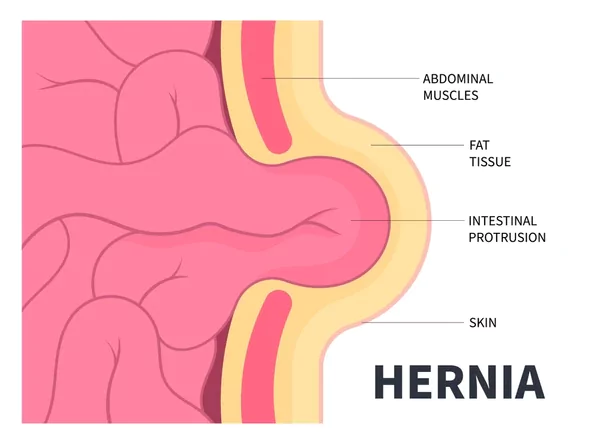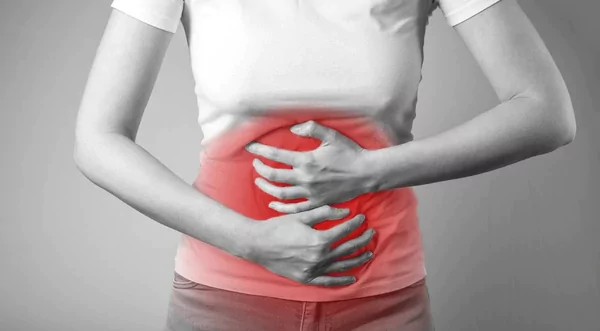Hernia Symptoms in Men vs Women: What’s the Difference?
By Dr. Pramod D. Bahekar – Best Hernia Surgeon in Dombivli East
Hernias are a common yet often overlooked health issue that can affect both men and women.
While the general idea of a hernia is widely known, its symptoms can vary significantly between genders—leading to delays in diagnosis and treatment, especially in women.
As one of the best hernia treatment doctors in Dombivli, Dr. Pramod D. Bahekar, with 37+ years of surgical experience, offers advanced and cost-effective hernia treatment tailored to each patient’s needs.
He practices at Amrut Hospital Dombivli, a trusted center for high-quality and affordable surgical care.
In this blog, we’ll explore what is hernia, the differences in symptoms between men and women, types of hernias, and treatment options available.

What is Hernia?
A hernia occurs when an internal organ or tissue protrudes through a weak spot in the surrounding muscle or connective tissue.
This often appears as a noticeable bulge and can lead to discomfort or pain, especially during activities such as lifting, bending, or coughing.
Common Causes of Hernia:
- Muscle weakness due to aging
- Straining while lifting heavy objects
- Obesity
- Chronic coughing or sneezing
- Previous surgeries or injuries

Hernia Types
Understanding the different types of hernias is crucial for proper diagnosis and treatment.
- Inguinal Hernia
- Most common in men
- Occurs when tissue pushes through a weak spot in the groin muscles
- Femoral Hernia
- More frequent in women
- Appears in the upper thigh, near the groin
- Umbilical Hernia
- Common in newborns and post-pregnancy women
- Develops around the belly button
- Hiatal Hernia
- A part of the stomach bulges through the diaphragm into the chest
- More internal, often without visible bulge
- Incisional Hernia
- Occurs at the site of a previous surgery

Hernia Symptoms in Men
Men are more prone to developing inguinal hernias, and their symptoms are often more visible.
Common Symptoms:
- A visible bulge in the groin or scrotum
- Pain or discomfort while lifting, coughing, or bending
- A feeling of heaviness or weakness in the lower abdomen
- Burning or aching sensation near the bulge
- Swelling that worsens throughout the day
Hernia Causes in Male:
- Heavy lifting without support
- Chronic constipation or straining
- Persistent cough or respiratory issues
- Obesity and lack of physical fitness
- Genetic predisposition or previous abdominal surgery

Hernia Symptoms in Women
Unlike men, women may not experience a visible lump. Their hernia symptoms can often be mistaken for gynecological or digestive problems.
Abdominal Hernia Symptoms in Women:
- Chronic pelvic or lower abdominal pain
- Bloating, constipation, or digestive discomfort
- Pain that worsens during menstruation
- Pressure or heaviness in the lower abdomen
- Tenderness at the hernia site without a visible bulge
Many women experience delayed diagnosis due to the non-specific nature of these symptoms.
That’s why consulting an expert like Dr. Pramod D. Bahekar, the best hernia surgeon in Dombivli East, practicing at Amrut Hospital Dombivli, is crucial for accurate diagnosis and timely care.
Differences in Symptoms: Men vs. Women
| Symptom | Men | Women |
| Visible Bulge | Often present in groin/scrotum | May not be visible, especially deeper |
| Pain Location | Sharp and focused on groin | Diffused in pelvic/lower abdomen |
| Diagnosis | Easier due to visible bulge | Often delayed or misdiagnosed |
| Common Hernia Type | Inguinal | Femoral or Umbilical |
When Should You See a Doctor?
If you notice any of the following symptoms, don’t ignore them:
- Persistent or worsening pain
- A growing bulge that causes discomfort
- Nausea or vomiting
- Difficulty in bowel movements
- Signs of hernia strangulation (redness, severe pain, fever)
Early diagnosis and treatment can prevent complications and the need for emergency surgery.
Hernia Diagnosis and Treatment Options
Diagnosis:
- Physical Examination
- Imaging Tests: Ultrasound, CT Scan, or MRI
- Review of symptoms and medical history
Treatment Approaches:
- Lifestyle Adjustments: Weight loss, dietary changes, avoiding heavy lifting
- Watchful Waiting: In small, painless hernias
- Surgical Repair:
- Open Surgery: Traditional method with a larger incision
- Laparoscopic Surgery: Minimally invasive with quicker recovery
- Robotic-Assisted Surgery: Precision with minimal discomfort
Dr. Pramod D. Bahekar, with 37 years of experience, specializes in all forms of hernia surgeries and offers effective treatment at Amrut Hospital Dombivli, known for its advanced facilities and compassionate care.
Why Choose Dr. Pramod D. Bahekar for Hernia Treatment in Dombivli?
- Renowned as the best hernia treatment doctor in Dombivli East
- 37+ years of surgical experience with excellent outcomes
- Offers both open and laparoscopic hernia repair
- Personalized care with patient comfort in mind
- Affordable surgical options with world-class infrastructure at Amrut Hospital Dombivli
Frequently Asked Questions (FAQs)
Q1. What is the most common hernia type in men?
A: Inguinal hernia is the most common type in men, often causing a visible bulge in the groin or scrotum.
Q2. Can women get hernias even without a visible bulge?
A: Yes. Many women have internal hernias that may not show external swelling but cause symptoms like pelvic pain or bloating.
Q3. Are hernias dangerous if untreated?
A: Yes. Untreated hernias can lead to complications like incarceration or strangulation, which can be life-threatening.
Q4. Is surgery the only treatment for hernia?
A: While lifestyle changes may help with small hernias, surgery is often the most effective and permanent solution.
Q5. How do I choose the right surgeon?
A: Look for an experienced and board-certified surgeon. Dr. Pramod D. Bahekar, with 37 years of expertise, is considered one of the best hernia surgeons in Dombivli East, practicing at Amrut Hospital Dombivli, where patient comfort and safety are top priorities.
Conclusion
Hernias can present differently in men and women, which makes awareness and timely intervention crucial. If you’re experiencing any symptoms—visible bulge, pain, or discomfort—it’s important to consult a specialist.
Dr. Pramod D. Bahekar, a trusted name in hernia treatment in Dombivli with 37 years of surgical expertise, offers compassionate, effective, and affordable care at Amrut Hospital Dombivli to restore your quality of life.
